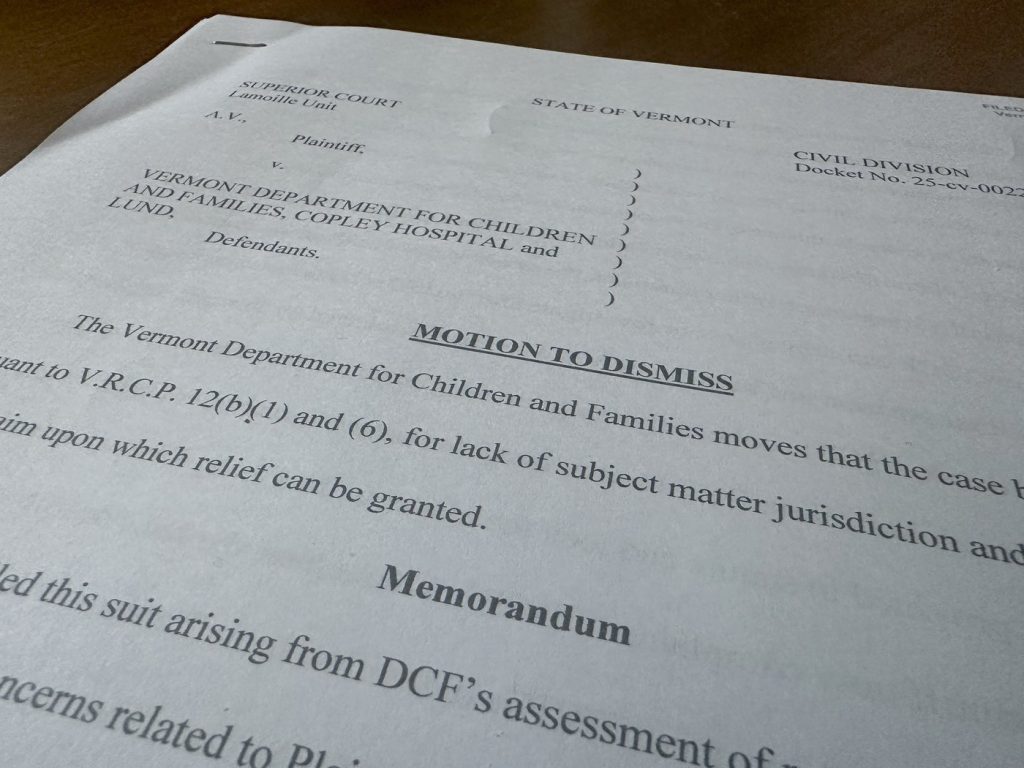CONCORD, N.H. (AP) - Vermont's child welfare agency, the Department for Children and Families (DCF), has moved to dismiss a lawsuit that claims the state systematically targets and monitors pregnant women perceived as unfit for motherhood. The legal action was initiated two months prior by a woman referred to by her initials, A.V., who alleges that the state conducted covert investigations into her circumstances during her pregnancy and subsequently gained custody of her daughter even before the child was delivered.
The lawsuit was filed by the American Civil Liberties Union of Vermont and the Pregnancy Justice advocacy group. It seeks to put an end to what is described as an unlawful surveillance program and requests unspecified monetary compensation for the plaintiff. A.V.'s allegations stem from her experience with a homeless shelter where she temporarily stayed in January 2022. The shelter's director reportedly informed the DCF that A.V. exhibited signs of untreated paranoia, dissociative behaviors, and post-traumatic stress disorder, prompting the agency to initiate an investigation.
During this investigation, DCF is accused of contacting A.V.'s counselor, midwife, and hospital social worker, collecting information regarding her mental health and well-being. The lawsuit contends that the state's actions were overreaching since it allegedly gained temporary custody of the fetus during A.V.'s labor and then took the newborn immediately after birth. A.V. argues that the state lacked jurisdiction prior to the baby's birth, a point the state denies in its dismissal request.
In its motion, Assistant Attorney General David Groff defended DCF's actions, stating that the agency is tasked with the challenging role of ensuring children are protected from potential abuse and neglect. He argued that the DCF has the authority to investigate issues concerning a soon-to-be-born child, asserting that it is not required to wait until harm occurs post-birth.
The state’s motion contends that the family court system maintains exclusive jurisdiction over matters concerning whether a child necessitates care or supervision, thus alleging that A.V. cannot use this lawsuit to contest previous custody decisions. Furthermore, the DCF's filing neither confirms nor denies the utilization of a so-called “pregnancy calendar” utilized for tracking purposes, arguing that A.V. lacks standing to challenge this practice since she has not claimed to be part of such a calendar.
The lawsuit further names Copley Hospital, where A.V. gave birth, along with Lund, a counseling center that provided her treatment, as defendants in the case. Lund has also filed a motion to dismiss the lawsuit. In its response, Copley Hospital stated that it acted in accordance with state law during its cooperation with the DCF’s investigation. The hospital has refuted allegations that it unlawfully disclosed A.V.'s confidential medical information or routinely collects and shares sensitive data regarding pregnant patients.
As the lawsuit unfolds, the implications of its outcome are significant for public perception of child welfare protocols and the legal parameters within which such investigations are conducted. The DCF's request for dismissal underscores ongoing debates around the rights of pregnant women and the state's role in monitoring maternal health in the context of child welfare.










